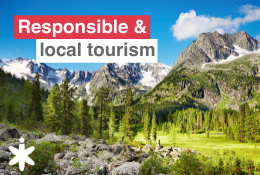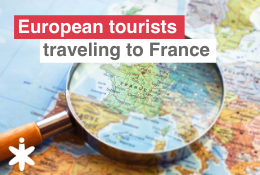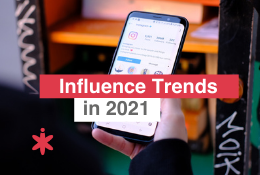On your marks, get set, go!
Are the Olympics a good way to end up on the podium of tourist destinations?
On your marks, get set, go! Are the Olympics a good way to finish on the podium of tourist destinations?
Launch of “Watch” the new Facebook video platform that wants to compete with YouTube
5 September 2017
The learning expeditions: an attractive event format for the MICE industry
20 September 2017On your marks, get set, go! Are the Olympics a good way to finish on the podium of tourist destinations?

HURRAY!
Paris will host the Summer Olympics in 2024!
There was no major suspense around this, but it’s now official: the final vote of the IOC in Lima put an end to one of the sporting soap operas of the last few months.
Our athletes and politicians couldn’t be happier, French people are in good mood, official sponsors rub their hands … but let’s raise a few questions:
Is there necessarily a positive tourism impact for organizing destinations?
Does the Olympics convey tourism growth, or is this just a myth?
And afterwards, how can the “Olympics effect” be maintained?
Let’s take a look at some significant past examples from around the world:
The unexpected tourism decline: the London example, summer 2012
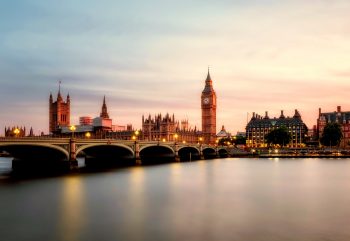
When the 2012 Olympic Summer Games were awarded, to London, the British’s enthusiasm was as large as their expectations in terms of impact on the local economy and tourism.
Unfortunately, London is a good example of flagrant discrepancy between dreams conveyed by the Olympic Games and the reality of achieved results:
- Investment were enormous (budget forecast in 2005: € 2.5 billion € // final budget spent: € 15 billion €),
- for disappointing tourist outcome: this effect was as perverse as unexpected. By organizing the Olympic Games in the middle of the high tourist season, London’s regular tourists ran away, frightened by the rising accommodation prices, and by the possible nuisances caused by the Games (saturated transports, crowded areas…)
A “desertion” that generated the loss of 750 000 tourists in August, only partially compensated by the Olympic Games spectators attending the events (500 000 tickets holders).
Professionals of the tourism industry all agreed: a spectator spending most of his day at the stadium is not a tourist who visits and spends.
As a result, during summer 2012, hotels, restaurants and cultural sites in London saw their activity fall by nearly 40%. Even Easyjet noticed that the demand for flights to / from London this summer was down.
London can nevertheless be reassured: already well established on the international tourist scene, the city didn’t need rely on the Olympic Games to build up its tourism sector.
As of summer 2013, the city returned to its usual visitors’ level (4.8 million international tourists in Q3 of 2013, vs. 4 million in Q3 of 2012), thus forgetting the headline of the Daily Mail the year before, “The Games of the ghost town”.
The booster for tourism growth: the Rio example, summer 2016
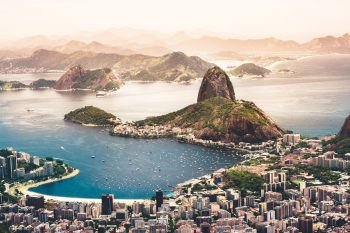
Rio was the first city organizing the Olympic Games in South America, two years after Brazil welcomed the Soccer World Cup in Brazil. Two major sporting events, which placed the destination on the forefront of the international media scene, and that allowed a major acceleration of accommodation development. The short-term impact of the Olympic Games on Rio tourism has been proven:
- 541,000 tourists visited Rio in July / August 2016, 157,000 more pax than during summer of 2015
- 95% of these visitors were willing to consider another trip to Brazil in the near future
- As for Brazil globally, 6.6 million international tourists visited in 2016 (+ 4.8% vs. 2015)
Rio now faces a double tourism challenge:
- In terms of image: capitalize on the media hype generated during the Olympics to assert its notoriety beyond the event.
The Olympics create a great media exposure, but they also place in the spotlight problems that tourists do not generally appreciate, and many of these subjects came up in Rio before the Olympic Games, such as riots, pollution problems and criminality.
- In terms of tourism product: structure the offer, to ensure the long-term flow of international customers.
The Soccer World Cup and the Olympic Games boosted growth in tourism infrastructure, giving Brazil the opportunity to modernize and develop its offer. As an example, Rio now has 30,000 more hotel rooms than in 2009.
But the legacy of the Olympics, the increased hotel capacities, and the tourism boom during summer 2016 are not enough to ensure the sustainability of tourism growth.
Just a year after the 2016 Olympics, voices are already being raised among tourism professionals about low occupancy rate in the Olympic Park areas: far from the major Rio tourist places, visitors have deserted these areas since the end of the Olympics.
Brazil must therefore maintain its tourism development efforts. We know better than anyone else that promoting a destination is a long-term task whose results are measured in the long run.
Delusion of Grandeur: the Sochi example, winter 2014
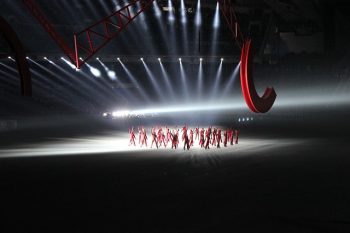
These winter games hold the record of being the most expensive in the whole history of the Olympic Games. No less than 37 billion € have been invested in pharaonic works: brand new airport, two new railway stations and 200 km of tracks, 400 km of roads, 77 bridges, 12 tunnels … and increase in hotel capacity (16000 additional rooms) as well as the creation of 3 Olympic villages.
These construction works, carried out to meet the IOC specifications, were also conducted in a specific geopolitical context: this was the opportunity for Russia to take advantage of such international exposure to demonstrate its strength.
And tourism in the middle of this?
Sochi was and remains above all a seaside resort nestled on the Black Sea coast: more than 1360 km south of Moscow, it’s one of the favorite destinations of the Russian elites for their summer holidays. Vladimir Putin himself owns a summer house there. Due to its subtropical climate, it is mainly a beach and spa tourism destination. About 4 million Russians stay there each year.
While the Olympics gave Sochi an international media visibility, this exposure was not enough to attract international tourists.
The seaside resort area has experienced a boom in visitors in 2014, but mainly due to domestic tourism: 3 million visitors in 2014 (+ 28% vs 2013), boosted by the 2014 Winter Olympics, and the Russian Grand Prix Formula 1 in October 2014 (65000 fans).
Vladimir Putin himself admitted that it did not matter if international visitors were not seduced; it was for the Russians themselves that Sochi needed to become once again their number one tourist destination.Today, more than 90% of Sochi’s visitors are Russians.A trend reinforced by the collapse of their currency, which make outbound tourism more expensive (to the benefit of domestic tourism), and by the geopolitical isolation of Russia.
To conclude…
The impacts of the Olympics on a tourist destination are diverse.
First of all, they affect tourism flows during and after the Olympics. Cities that are already very touristic, such as London or Paris, may experience a decline in tourism flows during the Olympics, but it usually stabilize quickly afterwards. However, for less visited cities, the Olympics act as a real springboard to accelerate their growth: this was the case of Barcelona, revealed to the rest of the world in 1992, and the Games may have the same effect for Rio beyond 2016.
The impact on a destination’s image is also crucial: this outstanding international exposure is both an opportunity and a threat. The promotion of a destination should thus be activated way ahead of the Olympic Games themselves, and must continue afterwards.
Then comes the time to raise the question of the reconversion of Olympic equipments: one of the most advanced examples today is undoubtedly the Olympic Park of Montréal. Over 40 years after the Olympics, the old venues, converted into museums, recreational areas and observation tower, welcome more than one million visitors every year.


 All news
All news  Back to the newsroom
Back to the newsroom